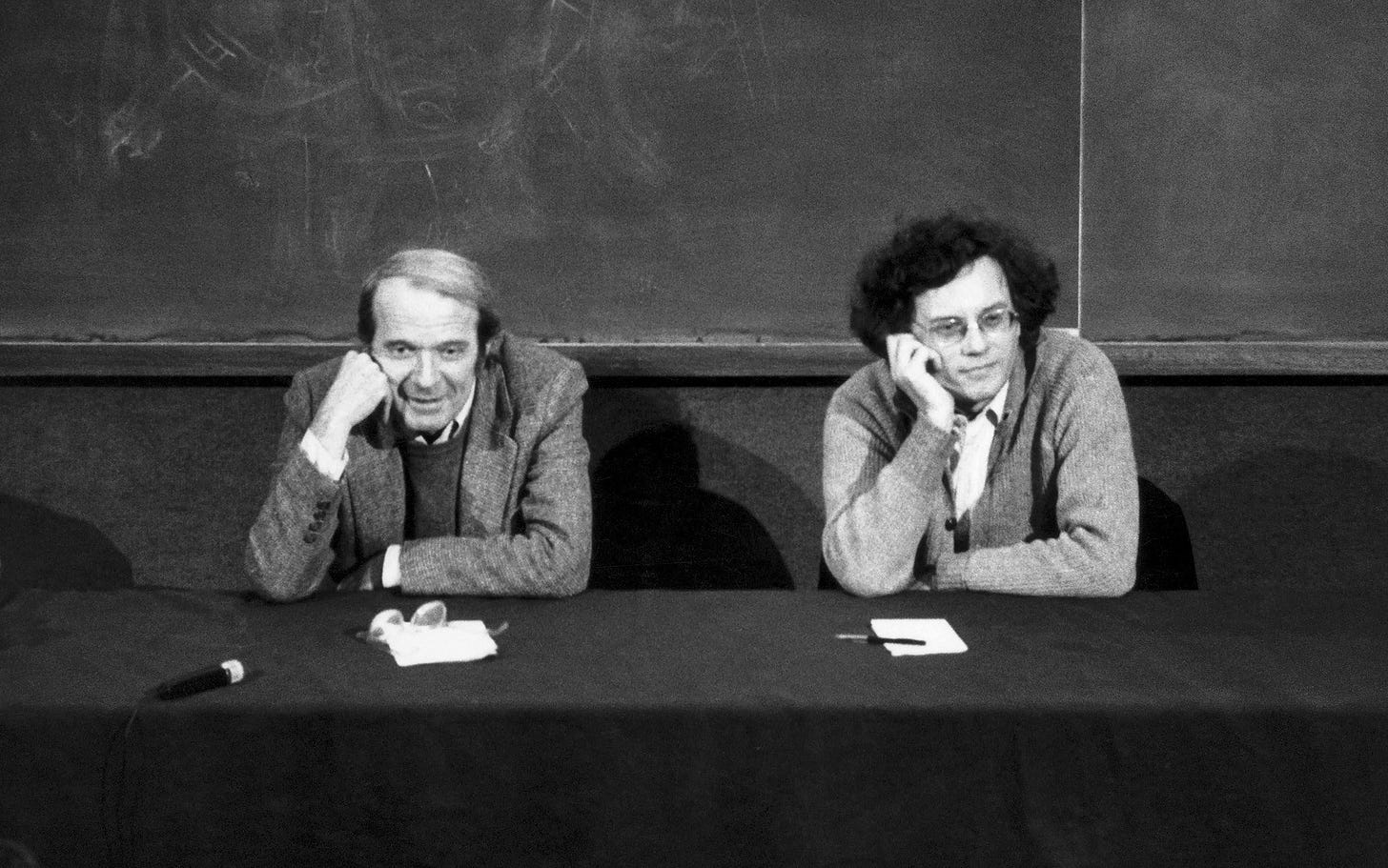Rhizomatic NFTs 🌺
Why some of the top philosophers of the 20th century might've loved Ethereum & NFTs!
Metaversal is a Bankless newsletter for weekly level-ups on NFTs, virtual worlds, & collectibles
Dear Bankless Nation,
Last year, my colleague David Hoffman wrote a really interesting article about Ethereum being akin to a “trust-producing plant.”
I’ve been thinking about that metaphor a lot lately and realized it has some compelling affinities with rhizomatics, a concept developed by 20th-century French philosophers Gilles Deleuze and Félix Guattari.
Broadly speaking I do personally think Ethereum, NFTs, and Web3 are indeed rhizomatic in nature. Mind you, rhizomes are “subterranean plant stems that send out roots and shoots,” e.g. ginger, lotus, and turmeric.

Accordingly, it’s not all just moon math when it comes to Ethereum and NFTs. We’re doing work all across our ecosystem that would seriously excite some of the 20th century’s greatest intellectuals like Deleuze and Guattari if they were still with us today.
Understanding why Deleuze and Guattari would’ve probably resonated with our ecosystem can help us crypto pioneers better understand this zeitgeist we’re living, or at least offer us fresh perspectives on it. Allow me to explain 👩🏫️
-WMP
🙏 Sponsor: Upshot—get paid to appraise NFTs. Start now!
Ethereum & NFTs: a rhizomatic revolution?
According to Deleuze and Guattari, rhizomatic thought is a conception of knowledge and society that allows “multiple, non-hierarchical entry and exit points in data representation and interpretation.”
Rhizomatic thought is in contrast to arborescent thought, which hitherto has been dominant in the West and is hierarchical, chronological, totalizing, and often state-organized.
From Wikipedia: “As a model for culture, the rhizome resists the organizational structure of the root-tree system, which charts causality along chronological lines and looks for the original source of 'things' and looks towards the pinnacle or conclusion of those 'things.' A rhizome [in contrast] is characterized by 'ceaselessly established connections ... organizations of power, and circumstances relative to the arts, sciences, and social struggles.'”
Cont’d: “Rather than narrativize history and culture, the rhizome presents history and culture as a map or wide array of attractions and influences with no specific origin or genesis, for a 'rhizome has no beginning or end; it is always in the middle, between things, interbeing, intermezzo.' The planar movement of the rhizome resists chronology and organization, instead favoring a nomadic system of growth and propagation.”
In this light, Ethereum and NFTs are rhizomatic rather than arborescent; they’re open, neutral, and non-hierarchical technologies, allowing for many entry + exit points and nomadic growth.
Notably, for Deleuze and Guattari rhizomatics is nomadic thought rather than capital-S State thought, which is enforced by State machines — think things like armies, police, bureaucracies, etc. This enforcement gives the State the ability to “control flows of all kinds — populations, commodities, money, etc. and so to vanquish nomadism.”
To this end the philosophers argued that the State restricts rhizomatic activity both in theory (e.g. via state-sanctioned ideologies) and in practice (e.g. regulation). In kind, nomadic thought relies on rhizomatics to combat, resist, or transcend State machines.
So this is precisely why I believe Deleuze and Guattari would have loved Ethereum and NFTs: in being rhizomatic and fostering nomadism, these technologies are powerful, deterritorialized tools to overcome State machines; they offer us lines of escape from arborescent society. They allow us to go Bankless, if you will!
These philosophers’ means of fighting wasn’t through violence, but through liberating “difference and intensities from the grip of State machines.” They called people who waged such fighting nomads, like the “premodern nomad tribes that roamed deterritorialized spaces while resisting the efforts of state powers to subdue them.”
Ethereum and NFTs aren’t inherently anti-state technologies, though obviously they are extra-sovereign, i.e. outside of states, which is an important and nuanced difference. Because of this extra-sovereign status, I think Deleuze and Guattari would’ve been enthralled with Ethereum and NFTs and their many rhizomatic and nomadic possibilities.
Zooming out, then, one philosophical way of looking at the Ethereum and NFT communities is as one big rising nomadic tribe. We’re roaming, building out at the world’s edges for the liberation of everyone. That’s at least how D&G might have seen things!
Action steps
👀 Read “Ethereum the Tree of Trust” by David Hoffman in Bankless
Subscribe to Bankless. $22 per mo. Includes archive access, Inner Circle & Badge.
🙏Thanks to our sponsor
UPSHOT
Get paid to appraise NFTs with Upshot!
Upshot is a protocol that pays NFT experts and collectors for honest insights - unlocking opportunities for a new generation of appraisers to capture value from their expertise and enabling a wave of powerful new DeFi primitives.
👉 Visit Upshot.io and start appraising NFTs today!
Not financial or tax advice. This newsletter is strictly educational and is not investment advice or a solicitation to buy or sell any assets or to make any financial decisions. This newsletter is not tax advice. Talk to your accountant. Do your own research.
Disclosure. From time-to-time I may add links in this newsletter to products I use. I may receive commission if you make a purchase through one of these links. Additionally, the Bankless writers hold crypto assets. See our investment disclosures here.






I love this. Reminds me of a thought I had recently about how rich the ecosystems are on river banks and between fields. Live flourishes on the edges and thresholds of spaces and technologies.
Ooh, didn’t expect to see some Deleuze and Guattari here. I’m sure they’d be fans of defi.